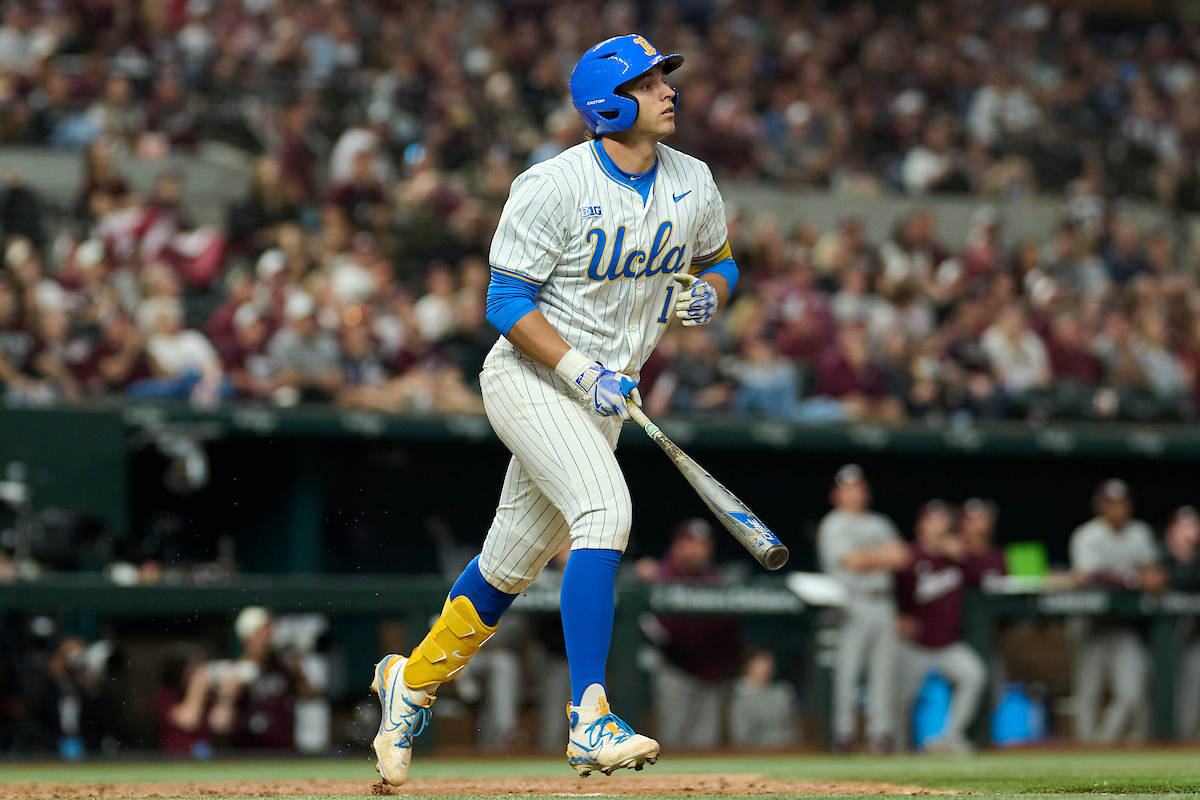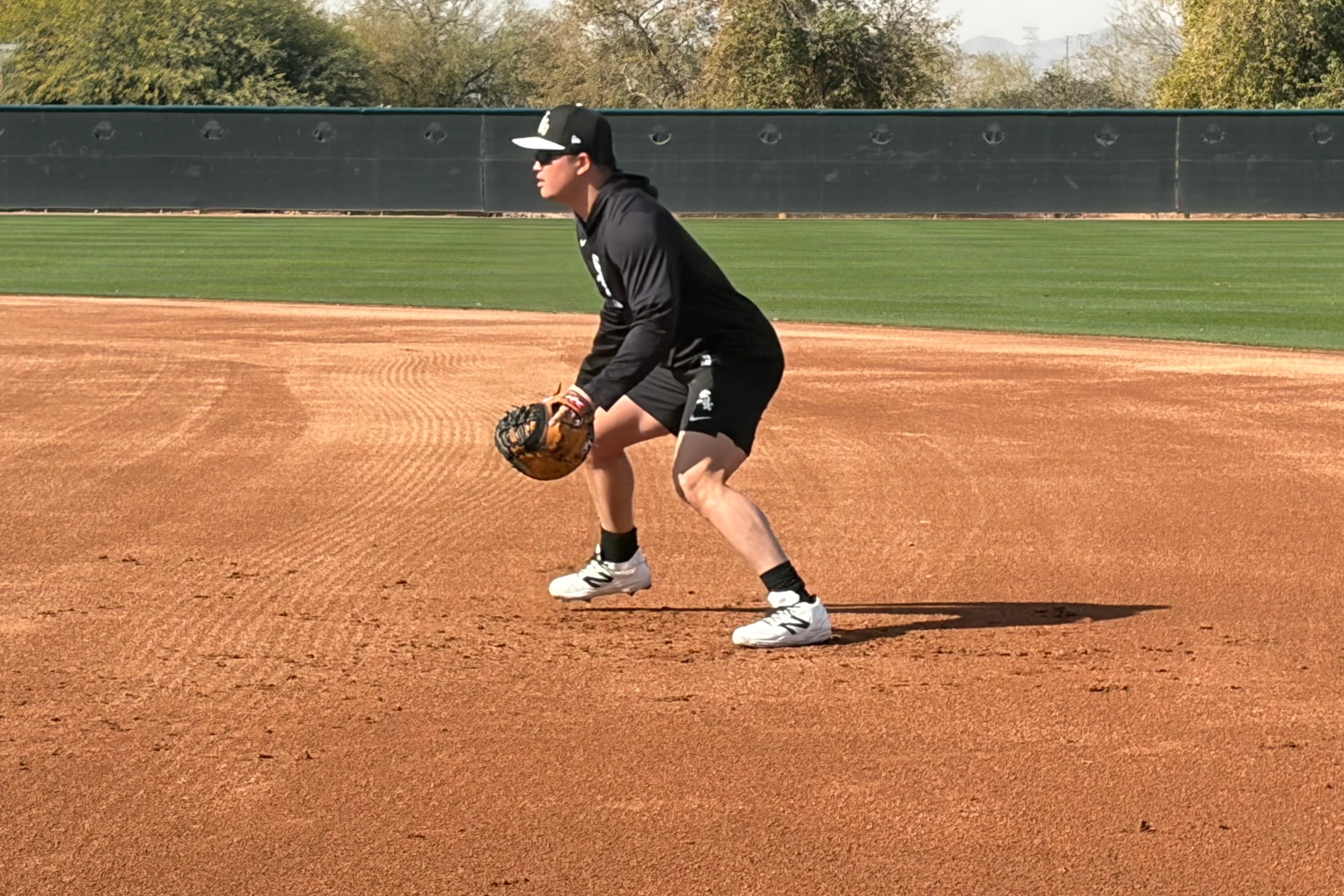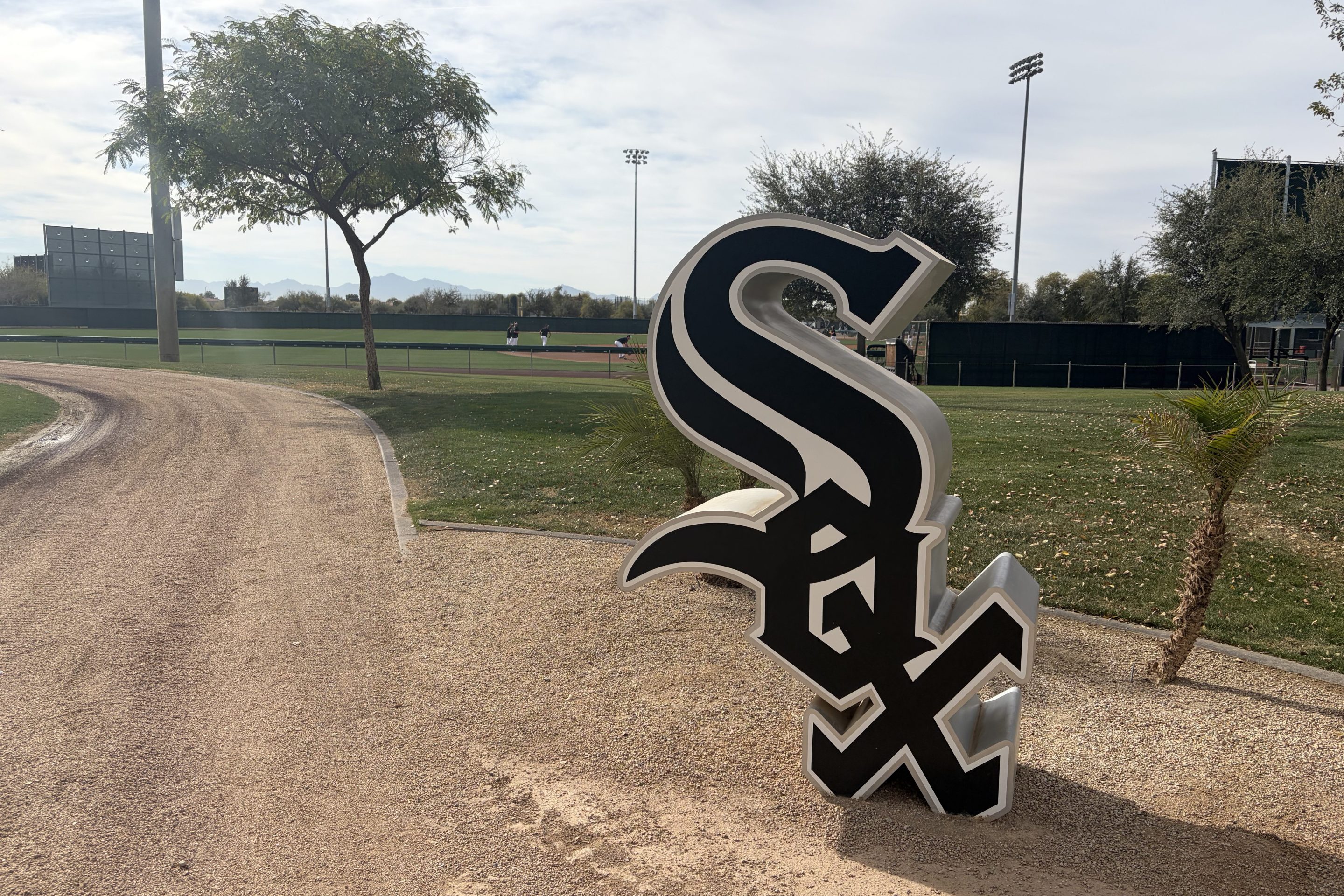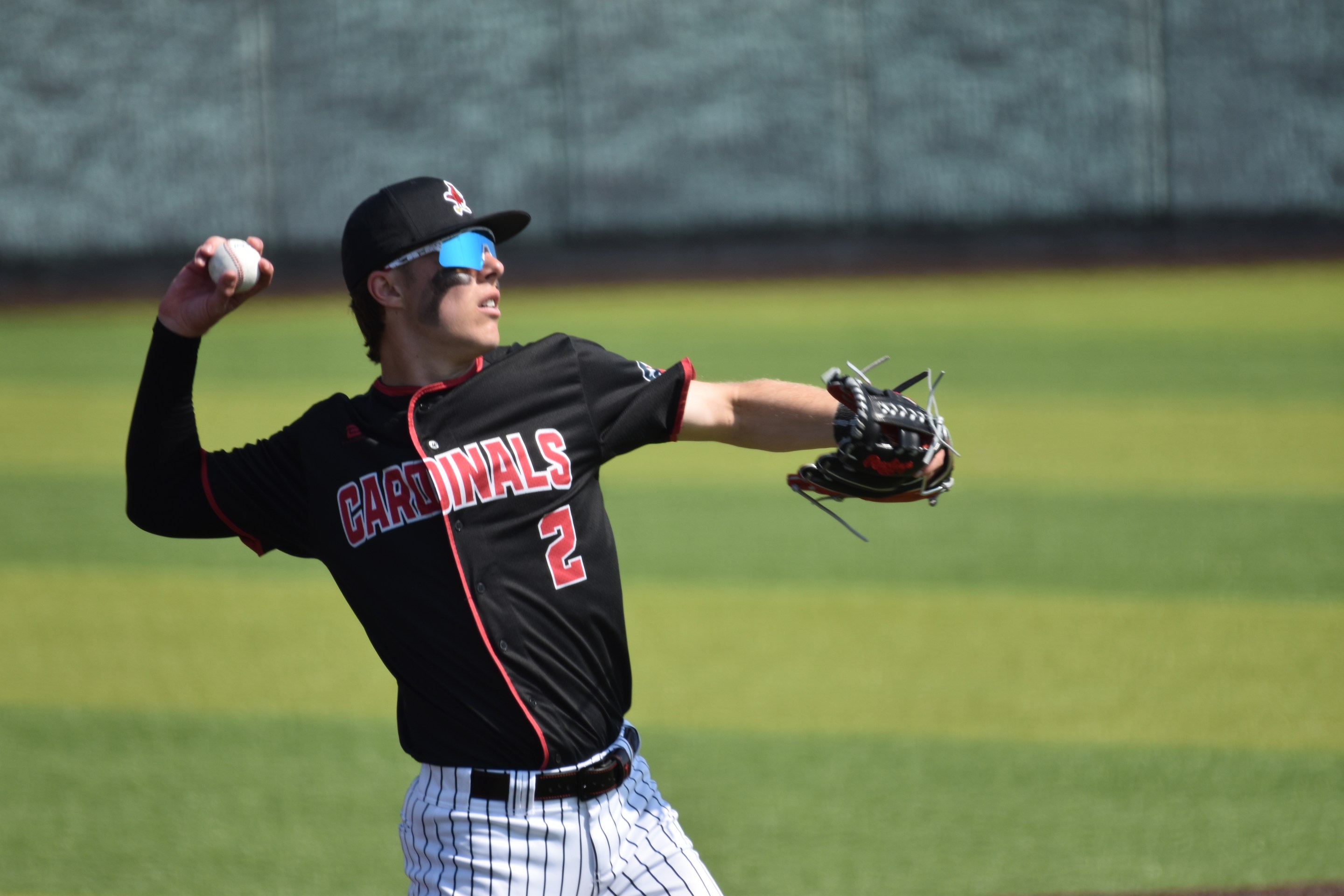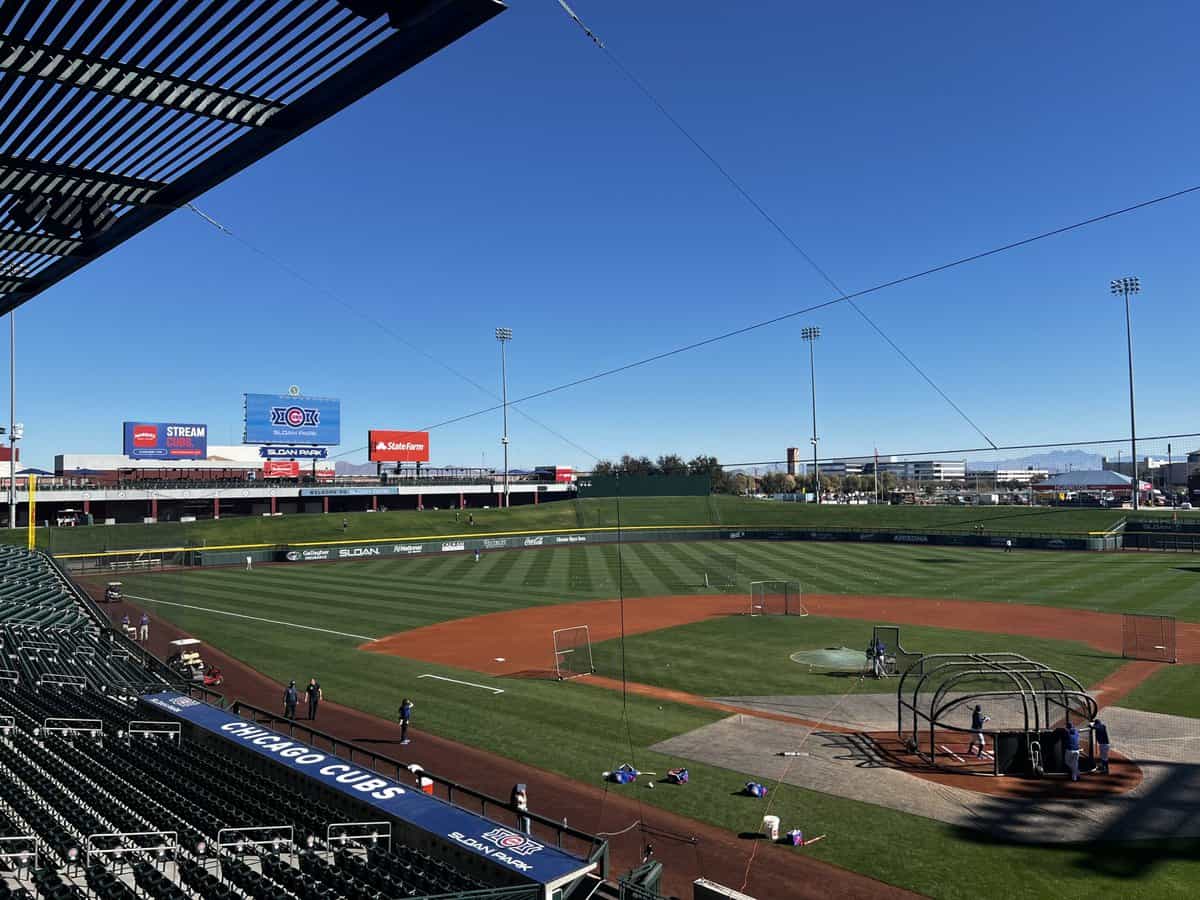To complete the grading process, which started with Monday's position-player review, here are assessments of the 2018 White Sox pitchers. To reiterate some context from that post, these grades are more art than science due to the subjective nature of how much expectations for a player should affect their grade. My goal is to balance actual player performance against their expectations and probable role (both short-term and long-term) entering the season.
Per usual, I consider an average grade to be someplace on the C/C+ borderline.
To keep the length of this list similar to that on the position-player side, only pitchers that logged at least 25 innings will be included. To orient you, Thyago Vieira and Chris Beck were the most-used players to miss the cut.
Jeanmar Gomez (RP): 26 G, 25.0 IP, 23.7% K, 8.8% BB, 3 HR, 4.68 ERA, 3.88 FIP, 0.2 fWAR, -0.2 bWAR
Gomez salvaged respectable season-long numbers with a strong September pitching in garbage time, but don't let the above fool you; Gomez saved his worst for close games. He logged six holds and had just one blown save, but the reverse would have been more appropriate; Gomez had one shutdown and six meltdowns, and his Win Probability Added (WPA) of -0.79 was second-worst among all Sox relievers. All six of his "holds" involved recording a single out, and only three of those involved more outs than baserunners. 3.88 FIP or not, Gomez was one of the most frustrating regular pitchers in the bullpen. Grade: D-
Xavier Cedeno (RP): 33 G, 25.1 IP, 26.4% K, 12.3% BB, 1 HR, 2.84 ERA, 3.00 FIP, 0.4 fWAR, 0.6 bWAR
Cedeno was a pleasant surprise that emerged as an effective LOOGY who was plenty capable of getting right-handed hitters out as well. He came from essentially nowhere to become a viable trade piece. The walks were on the high side, but Cedeno worked out about as well as anyone could have wanted. His grade is ultimately limited by role. Grade: B+
Bruce Rondon (RP): 35 G, 29.2 IP, 26.0% K, 17.5% BB, 1 HR, 8.49 ERA, 3.73 FIP, 0.2 fWAR, -1.3 bWAR
Rondon had a turn during the season as one of the pen's most effective relievers, but he's probably better remembered for his implosions and getting cut for control issues. Five of his outings went for three or more runs, the result of Rondon occasionally showing up with no command and Rick Renteria being content with punting a game and letting him wear it. His other 30 appearances, however, involved a 2.32 ERA. The White Sox did manage to get some good use out of this minor league free agent signing before everything went south and the bloated ERA is partially due to managerial indifference. However, he got cut by a 2018 White Sox team with an otherwise superlative tolerance for failure. It's hard to ignore that. Grade: F
Nate Jones (RP): 33 G, 30.0 IP, 23.4% K, 11.0% BB, 4 HR, 3.00 ERA, 4.56 FIP, 0.0 fWAR, 0.3 bWAR
It was a difficult season for Jones, as he lost yet another losing battle against his health. Believe it or not, that 30.0 IP mark is Jones' second-highest since 2013. This time, the culprit was (the dreaded) forearm soreness and it held him out for about half the year. When able to pitch, Jones wasn't terrible, but his continued fall from being one of the game's top firemen was visible in his reduced ability to miss bats. Grade: D+
Aaron Bummer (RP): 37 G, 31.2 IP, 24.3% K, 6.9% BB, 1 HR, 4.26 ERA, 2.40 FIP, 0.7 fWAR, -0.1 bWAR
Bummer continued to neutralize left-handers in 2018 (.245/.298/.302, 5:1 K/BB), at least to the extent he was afforded the platoon advantage. With a very crowded left side of the bullpen, Bummer was often relegated to mop-up duty (or worse: Charlotte), a fate that he didn't actually deserve. It's reasonable to assume his aggregate numbers would have looked better had he been used in accordance with his future role, and his outlook remains roughly unchanged since the start of the season. Grade: C+
Carson Fulmer (SP/RP): 9 G, 32.1 IP, 17.7% K, 14.6% BB, 8 HR, 8.07 ERA, 7.27 FIP, -0.6 fWAR, -1.0 bWAR
Expectations for Fulmer were easily the lowest among the trio of prospects that began the season in the rotation. Many walks, homers, and inefficient innings later, the bar has descended so low that James Cameron may never return from his search for it. Fulmer found himself relocated both to Charlotte and to the bullpen. He might never return from either. There's not much more to say here; Fulmer was horrible. Grade: F
Joakim Soria (RP): 40 G, 38.2 IP, 29.9% K, 6.1% BB, 2 HR, 2.56 ERA, 2.16 FIP, 1.4 fWAR, 1.0 bWAR
Soria didn't make the best first impression and was even removed from the closer's role for a little while. However, there's no questioning that he was fantastic for the White Sox. He only allowed a run in one game between May 21 and his trade to Milwaukee in late July for a couple of prospects. In Soria, the White Sox acquired a veteran player and experienced the best-case scenario. Imagine that. Grade: A
Luis Avilan (RP): 58 G, 39.2 IP, 26.7% K, 8.1% BB, 2 HR, 3.86 ERA, 2.71 FIP, 0.9 fWAR, 0.3 bWAR
Score another one for The Jake Peter Trade (actually, score a third, if you want to count Peter's stagnance in the PCL). Avilan did his job and gave the White Sox the LOOGY they've generally lacked, and true to expectations, he was competent enough against right-handed hitters to be trusted to face them. Like Soria, he pitched himself into a trade, which is to say that he accomplished his mission. Grade: B+
Juan Minaya (RP): 52 G, 46.2 IP, 27.8% K, 13.9% BB, 3 HR, 3.28 ERA, 3.57 FIP, 0.7 fWAR, 0.9 bWAR
The White Sox bullpen was thoroughly underrated by fans in 2018 and Juan Minaya is one of the reasons why. We spent most of the year looking for players who could take a step forward and Minaya was a pretty dependable reliever after he was recalled in June, as he allowed just a .220/.316/.329 line the rest of the way. Minaya allowed 9 walks in 3.1 innings to open the year and that led to a demotion that he certainly deserved. That rough beginning stung his season-long numbers, but if we look past that, this is a player who showed real growth. Grade: B+
Chris Volstad (RP): 33 G, 47.1 IP, 13.5% K, 5.6% BB, 9 HR, 6.27 ERA, 5.36 FIP, -0.4 fWAR, -0.6 bWAR
Chris Volstad. Grade: F
Jace Fry (RP): 59 G, 51.1 IP, 32.7% K, 9.4% BB, 4 HR, 4.38 ERA, 2.67 FIP, 1.2 fWAR, 0.1 bWAR
After scuffling mightily in his cup of coffee last season, Fry was a revelation in 2018. He made a mockery of opposing left-handed hitters (.143/.217/.190) and rendered righties mediocre enough that he could carry full innings. Fry's numbers speak for themselves, but if you're really worried about that 4.38 number, there's a perfectly redeeming story behind it ("Bequeathed Baserunners: What Those Jerks at ERA Corp. Won't Tell You"). Other than a handful of legitimate prospects and older veterans, the White Sox roster was comprised of a bunch of fringe guys and retreads who were awarded the opportunity to disprove meager expectations and entrench themselves into the White Sox' future plans. This statement is rather damning with respect to the rest of the roster, but Fry is the only marginal prospect who truly made the most of that chance. Grade: A
Hector Santiago (SP/RP): 49 G, 102.0 IP, 22.4% K, 13.0% BB, 16 HR, 4.50 ERA, 5.09 FIP, -0.2 fWAR, 0.6 bWAR
Santiago was largely effective in his role of swingman, but where he really shone was in extra innings. He appeared in extras five times this year and notched either the win or the save in four of those games. He took the loss in the other by allowing a single run in his second full inning of work, which was the only run he allowed in nine extra innings on the season. Santiago flew under the radar as one of the Sox' most clutch relievers (WPA: +0.83) when put into important situations and he logged eight shutdowns compared to just two meltdowns. The aggregate numbers were nothing special, but Santiago generally had a positive impact on the team. Grade: C+
Carlos Rodon (SP): 20 G, 120.2 IP, 17.6% K, 10.8% BB, 15 HR, 4.18 ERA, 4.95 FIP, 0.7 fWAR, 2.0 bWAR
Upon returning from the DL, Rodon tossed 20 starts that averaged 6 innings apiece, and that's a success story in of itself given his shoulder problems. His performance, however, was a mixed bag. He'd occasionally show up looking like a dominant ace and sometimes fight control problems and a concerning inability to miss bats. What saved his ERA was generally weak contact, as evidenced by a .242 BABIP and .312 xwOBA. However, it's unclear what we're supposed to take from that. "His stuff is so good that guys can't hit him hard, but also his stuff is not good enough to get guys to swing and miss." That doesn't scan, so something is going to have to give for Rodon going forward. Still, in 2018, Rodon was an important Non-Clown for the White Sox. Grade: C+
Dylan Covey (SP/RP): 27 G, 121.2 IP, 16.8% K, 9.6% BB, 13 HR, 5.18 ERA, 4.39 FIP, 1.1 fWAR, -0.2 bWAR
Covey's yet another pitcher on this list for whom there were little-to-no expectations at the outset of the season. He was legitimately excellent (with peripherals to match) through his first six starts, after which the wheels began to come off. One wonders whether he was a victim of scouting catching up to him, as Covey stopped being able to freeze hitters with hard sinkers up in the zone. He was eventually demoted to the bullpen and looked respectable again after taking over for Michael Kopech in September. Covey had a deserved reputation for mowing hitters down his first trip through the order (.625 OPS against) before things fell apart upon second viewing (.836 OPS against). Ultimately, he wasn't the pleasant surprise the 2018 White Sox needed, but a useful role as a swingman isn't out of the question. At the very least, we can say Covey's more interesting now than he was in March. Grade: C-
Lucas Giolito (SP): 32 G, 173.1 IP, 16.1% K, 11.6% BB, 27 HR, 6.13 ERA, 5.56 FIP, -0.2 fWAR, -1.3 bWAR
Given Giolito's strong finish to the 2017 season and a sterling spring training, it was widely (and justifiably) assumed that Giolito was the top candidate to become the 2018 White Sox' best starting pitcher. Instead, he floundered harder than every starter not named Carson Fulmer. Giolito finished with by far the highest ERA among qualified starters, and he only pitched enough innings to qualify because the White Sox didn't want to burn his last minor league option. His control was often nonexistent and he frequently had starts in which he could only command one pitch. He had about a month and a half of strong pitching in the second half, but that was erased by a horrid September (9.27 ERA, .316/.400/.526 against). Giving up on Giolito would be a mistake, but that said, he curtailed expectations about as much as he could. This season was somewhere in the bottom decile of what could have been expected from him, and while one's emotions might want to fight it, there's really no good justification for any other grade. Grade: F
Reynaldo Lopez (SP): 32 G, 188.2 IP, 18.9% K, 9.4% BB, 25 HR, 3.91 ERA, 4.63 FIP, 2.0 fWAR, 3.1 bWAR
A glowing ERA masked what was actually disappointingly shaky pitching for most of the early part of the year, but Lopez really cranked things up a notch in the last couple months of the season. His last seven starts featured two or fewer earned runs apiece, and he fully earned that excellent result: 45.2 IP, 48/14 K/BB, 2 HR, .173/.242./.247 allowed. He entered 2018 with questions about his future role and exited as the clear best pitcher on the starting staff (to the extent that's an honor). That's a big development, and while his aggregate peripherals are hindered by four months of tepid pitching, Lopez has given us something to dream on. Grade: B+
James Shields (SP): 34 G, 204.2 IP, 17,7% K, 9.0% BB, 34 HR, 4.53 ERA, 5.09 FIP, 0.8 fWAR, 1.4 bWAR
The White Sox needed Shields to eat innings in-between potentially-rough prospect starts and the major league leader in losses did so very reliably. The per-inning quality of pitching wasn't anything to get excited over and he didn't ultimately build himself into a trade chip, but he served his purpose and kept the White Sox in games much more often than not. He was cited by multiple players as a good influence, to boot. Given how poorly his White Sox tenure began, this relationship could certainly have ended a lot worse. Grade: C+
The Class Rank:
- Jace Fry, A
- Joakim Soria, A
- Reynaldo Lopez, B+
- Juan Minaya, B+
- Xavier Cedeno, B+
- Luis Avilan, B+
- James Shields, C+
- Hector Santiago, C+
- Carlos Rodon, C+
- Aaron Bummer, C+
- Dylan Covey, C-
- Nate Jones, D+
- Jeanmar Gomez, D-
- Bruce Rondon, F
- Lucas Giolito, F
- Chris Volstad, F
- Carson Fulmer, F

